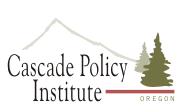
Oregon Cascade Policy Institute
By Jordan Lofthouse, Randy Simmons, and John A. Charles, Jr.
With Oregon’s schools constantly facing budget crises, why are our lawmakers missing out on the opportunity to give more money to our kids?
As part of the Common School Trust Lands, the Elliott State Forest has the constitutional obligation to generate money for Oregon’s schools. In the last few years, however, environmental interests have carefully manipulated the Endangered Species Act so that the Forest costs taxpayers money instead of providing funds for Oregon’s children.
Lately, harvest levels and revenues have been a fraction of their former levels. Despite potential to harvest 40 million board feet in 2013, actual harvest was only 4.5 million board feet. The expected timber harvest for 2014 is similar. This has resulted in a net deficit of $3 million that is covered by your tax dollars.
The Oregon State Land Board is searching for ways to balance the financial responsibilities of the forest with environmental factors hindering the Forest from providing revenue for schools.
Researchers at Utah-based Strata Policy have identified several options for monetizing the Elliott State Forest so it can meet its constitutional responsibility to Oregon’s children. Privatizing the Elliott State Forest is likely the most financially beneficial option. In a report for the Cascade Policy Institute, Eric Fruits of Economics International concluded that selling or leasing Forest assets could provide stable funding for Oregon schools at approximately $40 to $50 million annually.
A second option is a land exchange between the federal government and the state government. The federal government would receive control of the ESF in exchange for federally owned land that could be more easily monetized for Oregon schools. Other states such as Utah, Minnesota, and California have all successfully made land exchanges to increase revenue for schools.
A third but less likely option consists of renewing a Habitat Conservation Plan (HCP) with federal agencies. HCPs allow timber to be extracted while also protecting endangered species habitat. The former HCP expired several years ago, meaning that harvestable areas in the Elliott State Forest are severely limited. If state and federal agencies can negotiate a new HCP for the forest, timber harvest and revenue can increase while also protecting critical habitat. However, conflicts between state and federal agencies make HCP renewal a significant challenge.
As we consider ways of providing increased funding for education in Oregon, we should press the State Land Board to pursue options that will allow the ESF to fulfill its constitutional responsibilities. We can no longer allow environmental groups and federal regulations to dictate the failure of this trust at the expense of children’s education.
Jordan Lofthouse and Randy Simmons are scholars with Strata Policy, based in Utah. John A. Charles, Jr. is President and CEO of Cascade Policy Institute in Portland.
Disclaimer: Articles featured on Oregon Report are the creation, responsibility and opinion of the authoring individual or organization which is featured at the top of every article.

